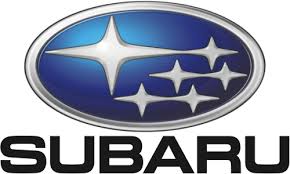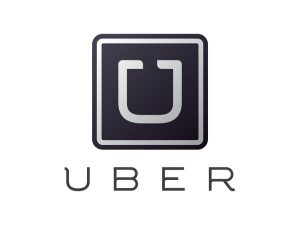 Top Class Action Lawsuits
Top Class Action Lawsuits
Heads Up Hyundai Owners! The automaker got hit with a defective automotive class action lawsuit alleging its power steering systems in certain vehicles can unexpectedly become difficult or impossible to steer, and that Hyundai willfully concealed the defect from consumers. Nice. Read this playbook?
Filed in California, by Houston Vinci and Jaehan Ku, the complaint asserts that the defect severely inhibits drivers’ ability to react to or avoid other cars, pedestrians and obstacles. The affected vehicles are model years 2013-2016 Accents and Elantras. According to the Hyundai lawsuit, the alleged defect results from conflicting steering wheel input data that causes power steering to turn off.
The lawsuit states that a similar defect had resulted in earlier models being recalled in April 2016. That recall involved 2011 model year Sonatas built between 2009 and 2010. The NHTSA said the cars were vulnerable to a loss of electronic power steering if a circuit board inside the drive assembly malfunctions or is damaged.
“A reasonable customer who purchases a vehicle that advertises power steering as a feature expects that feature to function properly,” the complaint states. “A reasonable consumer further expects and assumes that defendant will not sell vehicles with known safety defects, and will disclose any such defect to their customers.”
According to the lawsuit, Vinci, a resident of Oregon, bought a used 2013 Accent in June 2015. Since then, she has experienced repeated problems with steering in that vehicle. Despite taking it to Hyundai’s dealers for repairs, so far, the problem has not been fixed, she alleges. In January 2016, the power steering defect caused her to crash, the lawsuit states.
Ku, also a resident of Oregon, bought a new 2014 Elantra in March of that year. According to the lawsuit, Ku spent two years as a truck driver in the South Korean military. In May 2016, the steering wheel in his Elantra locked up and his car veered sharply to the left. At the same time the brakes and he was unable to stop before crashing into the barrier on the side of the highway. A camera Ku had installed in the car captured the incident on video.
According to the lawsuit, numerous similar complaints have been made to the National Highway Traffic Safety Administration. As of June 7, there were more than 100 such complaints involving Elantras and 10 involving Hyundai Accents. These include a report of a driver who allegedly was unable to turn away from a wooden wall on the side of a road and drove through it.
The class action lawsuit cites eight claims, including violations of California laws, the laws of 29 states, breach of implied warranty, fraudulent concealment and unjust enrichment.
The case is Houston Vinci et al. v. Hyundai Motor America et al., case number 8:17-cv-00997, in the U.S. District Court for the Central District of California.
Better steering at Hyundai may have prevented this defective automotive class action lawsuit, not to mention a lot of consumer grief.
Top Settlements
National Penn Bank Overdrawn on Overcharging? A recent settlement would certainly indicate so. The bank has agreed to pony up $975,000 in an improper overdraft fees class action lawsuit.
The National Penn Bank lawsuit was brought in 2012 by Jennifer Collier, who claimed that rather than charging overdraft fees on her actual account balance, the bank incorrectly charged overdraft fees based on the ledger balance in her account or the amount available at the beginning of the day.
If approved, the settlement will provide compensation to a class of National Penn Bank customers who were incorrectly charged overdraft fees. Collier, as lead plaintiff, would receive a $2,500 award for service.
National Penn was purchased by BB&T Corp., nearly two years ago. The proposed settlement comes after several rounds of briefing and appeals to both the state’s Superior Court and its Supreme Court.
The case is Jennifer Collier v. National Penn Bank et al., case number 120601036, before the Court of Common Pleas of Philadelphia County, Pennsylvania.
Victoria’s Secret Not So Secret Settlement… The lingerie company has reached a $12 million settlement in a California overtime and labor law class action lawsuit If approved, the deal will end allegations brought by sales clerks in Victoria’s Secret’s California stores that the company failed to properly compensate workers scheduled for “call-in” shifts.
The sales clerks allege in their class action that the company cheated them out of pay for shifts that required them to call in two hours prior to a scheduled shift to find out if they were going to be working that shift. Further, the plaintiffs claim that the defendant owes its workers unpaid wages for scheduling shifts for which they showed up, only to be sent home after they reported for work. Ok—seriously?
If approved, the Victoria’s Secret settlement will compensate some 40,000 class members, all of whom worked in California and who were classified by Victoria’s Secret as nonexempt from overtime pay. The payouts will be calculated based on the length of employment with Victoria’s Secret, with rewards going to the lead plaintiffs. Additionally, attorneys’ fees and expenses, and a payment to California regulators under the Private Attorneys General Act, would be paid from the settlement fund.
The case is Mayra Casas v. Victoria’s Secret Stores LLC, case number 2:14-cv-06412, in the U.S. District Court for the Central District of California.
So folks – on that happy note – this week’s a wrap –see you at the bar!!

 Top Class Action Lawsuits
Top Class Action Lawsuits  Top Class Action Lawsuits
Top Class Action Lawsuits  Top Class Action Lawsuits
Top Class Action Lawsuits  Top Class Action Lawsuits
Top Class Action Lawsuits  Top Class Action Lawsuits
Top Class Action Lawsuits
 Top Class Action Lawsuits
Top Class Action Lawsuits  Top Class Action Lawsuits
Top Class Action Lawsuits  Top Class Action Lawsuits
Top Class Action Lawsuits